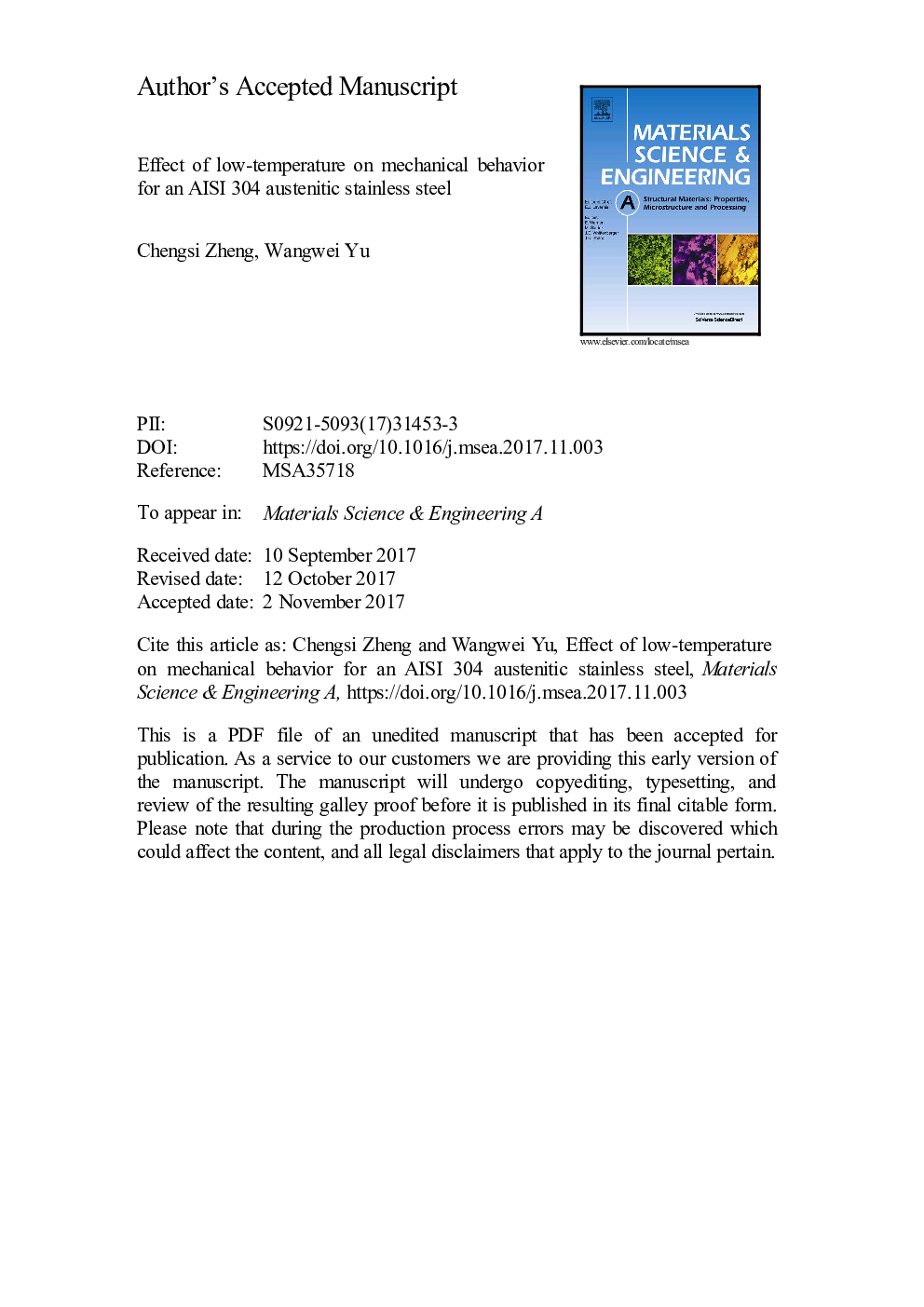| Article ID | Journal | Published Year | Pages | File Type |
|---|---|---|---|---|
| 7974518 | Materials Science and Engineering: A | 2018 | 21 Pages |
Abstract
An AISI 304 austenitic stainless steel (ASS) with average grain size of approximately 48 µm was selected to explore the effect of the low-temperature on mechanical behavior for commercial metastable ASS, which basing on tensile tests and Charpy V-notch impact tests under temperatures of 20-298 K, Feritscope testing and physical metallurgy. The results showed that both yield strength and tensile strength were enhanced by lowering temperatures; however, the uniform strain decreased with reducing temperatures. The yield strength at 20 K and 77 K were much higher than that at other temperatures, accompanying with an abrupt increase of thermally-induced martensite before tensile testing. The Charpy V-notch impact energy decreased faster in the range of 77-298 K and kept almost unchanged in the range of 20-77 K, and the ASS at 20 K still exhibited a dimple shaped fracture. Generally, the work-hardening rate (Î) of the ASS at testing temperatures of 20-298 K dropped rapidly at the initial plastic strain range (Stage I) and then grew with the increase of tensile strain (Stage II), then following by a continuous decline to necking (Stage III), i.e., the generation of a peak of work-hardening rate. Specifically, the Stage I, II and III were terminated in advance and the peak value at the Stage II were increased obviously by reducing temperature from 298 K down to the range of 20-253 K. Furthermore, the work-hardening behavior of the ASS was discussed in view of the evolution of microstructure basing on Olson-Cohen model.
Keywords
Related Topics
Physical Sciences and Engineering
Materials Science
Materials Science (General)
Authors
Chengsi Zheng, Wangwei Yu,
